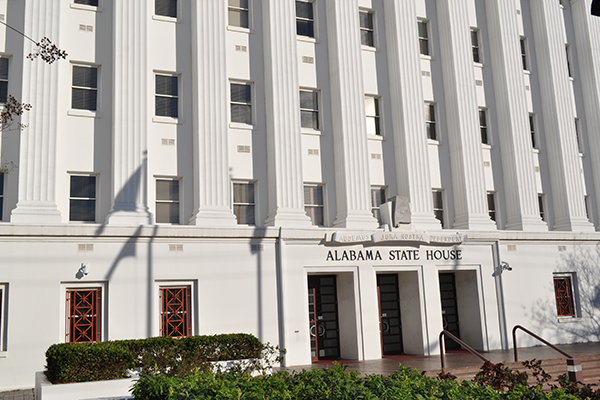By Carrie Brown McWhorter
The Alabama Baptist
Two bills aimed at combatting human trafficking and another to legalize daily fantasy sports were among those passed in the final days of the Alabama Legislature’s 2019 regular session which ended May 31.
The Legislature unanimously passed two bipartisan human trafficking bills, House Bill (HB) 261 and HB 262. Rep. Merika Coleman (D-Birmingham) and Rep. Terri Collins (R-Decatur) co-sponsored the legislation.
Trucker training
HB 261 requires all new commercial driver licensees to undergo industry-specific human trafficking training. Truckers Against Trafficking, a national organization that trains truckers on identifying human trafficking victims in their daily work life, will work with junior colleges and trade schools to facilitate the training.
HB 262 clarifies existing law to prohibit publishing photos of those charged with the act of prostitution, while allowing for photos of those charged with soliciting or procuring prostitution to be published. The bill’s goal is to protect potential victims of human trafficking from public identification while deterring those arrested for paying for sex.
Two human trafficking resolutions also were passed in the 2019 session. House Joint Resolution (HJR) 145 encourages Alabama law enforcement officials to ensure every officer in the state is trained regarding human trafficking and HJR 244 creates the Alabama Healthcare Human Trafficking Training Program Commission, which is tasked with developing a training module for all health care-related employees to readily identify and provide trauma-centered care for human trafficking victims.
“With the human trafficking bills and resolutions passing through the Legislature … Alabama is sending a very loud and powerful message to traffickers that we are extremely serious about stopping these horrible crimes,” said Pat McCay, chair of the Alabama Human Trafficking Task Force. “A big thank you to everyone who called and emailed their legislators to make this a reality.”
Earlier in the session the Legislature passed the Alabama Human Life Protection Act which makes performing an abortion in Alabama a felony. Gov. Kay Ivey signed the bill May 15 but noted the law is “unenforceable.”
Supporters hope Alabama’s bill and others like it will force the U.S. Supreme Court to revisit and perhaps even overturn Roe v. Wade, the decision that legalized abortion in the U.S.
The Legislature also passed HB 361, which legalizes online daily fantasy sports (DFS) in Alabama. Alabama Citizens Action Program (ALCAP), who opposed the bill, argued daily fantasy sports websites like FanDuel and DraftKings, which allow participants to place bets in online sports-related contests and win money based on individual and team performance in real-life games, constitute gambling.
Supporters argue online daily fantasy sports are games of skill not chance and therefore a constitutional amendment was not required to allow them to operate in the state.
A proposal to establish a state-sponsored lottery in Alabama also failed to pass. The bill passed in the Senate but failed to pass a procedural vote in the House effectively killing the bill for the session.
However, Joe Godfrey, ALCAP executive director, said he suspects the lottery bill is not dead.
“We anticipate the lottery may come up again as a suggested source of revenue to fund prison reform,” he said.
An increase in funding for prisons was included in next year’s budget and some legislators have said they expect Ivey to call a special session on prisons later this year.
Two local gambling bills calling for constitutional amendments to legalize the operation of electronic gambling devices (slot machines) in Macon and Greene counties failed to pass.
Marriage licenses
Legislators also passed a bill to eliminate marriage licenses in Alabama. Officials in several counties stopped issuing marriage licenses following the U.S. Supreme Court decision legalizing gay “marriage” in 2015. Under the new requirements couples will file an affidavit with the county probate judge, who will record the marriage. The bill also eliminates the requirement of a ceremony to “solemnize the marriage.” (Carrie Brown McWhorter)
For more information on any of these bills go to www. tabonline.org/bills.






Share with others: